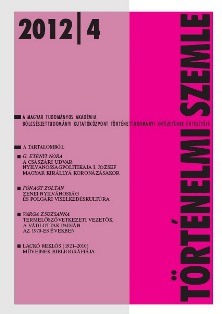Miért bűn a sikeresség? Termelőszövetkezeti vezetők a vádlottak padján az 1970-es években
Why is success equal to guilt? Leaders of Agrarian Cooperatives as Accused in the 1970s
Author(s): Zsuzsanna VargaSubject(s): History
Published by: Magyar Tudományos Akadémia Bölcsészettudományi Kutatóközpont Történettudományi Intézet
Summary/Abstract: It is commonly known that the early 1970s were burdened by a heated political conflict within the leadership of the Hungarian Socialist Workers’ Party between the reformist forces and their conservative opponents. Within both the party leadership and the apparatus great was the number of those who disliked rigth from the outset the “New Economic Mechanism” which was launched in 1968. Most of them were driven by ideological stiffness and dogmatism into the camp of the opponents to the reform. They were joined there by the so-called heavy industrial lobby, the opposition of which was basically motivated by economic considerations. Whereas the great companies of heavy industry were slow in adapting to the new economic environment, agriculture, and before all the cooperatives performed rather well both in supplying the population and on the export markets. Thanks to the nature of the communist power-structure, the conflict indicated above could not manifest itself openly. Yet in the sphere of ideology the cooperatives were increasingly under attack. The debate whether cooperative property – with household plots and ancillary enterprises – could be regarded as socialist property started again. It was followed by administrative measures and financial restrictions. Simultaneously, criminal actions were launched in great numbers against the leaders of cooperatives. My research has hitherto revealed more than a thousand such persons in the first half of the 1970s, which means that up to 10-15% of this group was affected by the process. The study tries to answer the question of which institutions of the party-state system were used by the dogmatic group within the leadership in order to make legal action a mass phenomenon. Alongside the People’s Control Committees, an outstanding role was played by the so-called Coordination Committee, which coordinated the work of the police, the prosecutors and the judges. On the other hand, I summarise the main characteristics of these economic show trials. Basically, the accusations enlarged some kind of generally pursued activity, which seemed contrary to the conception of the conservative forces at power, whereupon a number of leaders associated with that particular activity were chosen and put to trial as an example to intimidate the rest. In reality, thus, those were punished who aimed at a rational economic activity, and took into consideration the requirements of the market. The defective nature of the campaign is shown by the mere fact that it was launched at a time when, thanks to the first oil crisis, the kind of flexible adaptation which was so characteristic of the cooperatives, would have been needed more than ever before.
Journal: Történelmi Szemle
- Issue Year: 2012
- Issue No: 04
- Page Range: 599-621
- Page Count: 23
- Language: Hungarian

